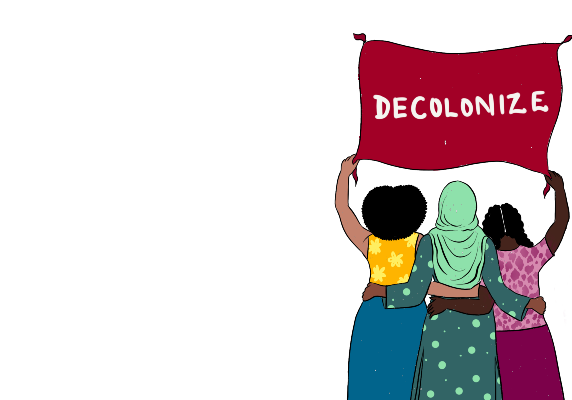Rethinking the way we work, at home and overseas
At All We Can, we were incredibly proud that we’d been named in the top five charities to work for by Third Sector – because we know the great work done on our partnerships takes credit.
All We Can’s partnership model grew from researching, listening, observing and realising something is not right in the way we tackle poverty.
And, like many who recognise this, we know we’ve been part of the problem in the past. We’re proud to be pioneering a solution.
Changing how we think about partnership
Led by Angela Zamaere Smith, our programmes director, our partnership model has shaped how we work in vulnerable communities around the world. It rewrites the relationship between donor and recipient, prompting partners to rethink what they’d accepted as normal. And, back in our office, that same model is shaping the mind-set and approach of our team.
At its simplest level, partnership begins by asking, not telling. Our approach starts with supporting our staff and our local partners across the globe to identify and refine their own vision and purpose. In practical terms overseas, this can lead to actions like funding an organisational development consultant to help the partner identify and work on their own capacity strengthening priorities, or investing in a strategic process to help them develop their strategy.
Whatever our partners feel is needed, All We Can commits to support in the way that will be most helpful for them to fulfil their mission. And then, most importantly, All We Can will help them implement the changes they need. We encourage the same from our staff.
Adopting what we’ve learned for our culture
The team culture at All We Can has been shaped by this partnership thinking. We’ve applied it to small things: from different team members chairing monthly corporate team meetings, through to inviting the full staff team to drive development of our new five-year strategy. Our staff wellbeing team has an empowered voice within All We Can, and all staff share lunch with the full board at quarterly meetings – where they’re encouraged to speak openly, honestly and constructively.
Last year, our partnership model was shortlisted for a charity award. At the event, the CEO of a large NGO told us: “We need this thinking and this model. The old model has failed”.
Subscribe to our newsletter
Our weekly email newsletter, Network News, is an indispensable weekly digest of the latest updates on funding, jobs, resources, news and learning opportunities in the international development sector.
Get Network NewsWe’ve been pioneering partnership thinking for a long time. Being included in Third Sector’s Best Charities to Work For will, we hope, focus attention and debate on what it means to model best practice within UK teams and their overseas partners.
Graeme Hodge, our chief executive frames it like this:
We see people’s potential, not their poverty – and meet them as equal partners in development. Our partnership approach is as embedded among our UK team and culture as it is in our work in some of the world’s poorest communities overseas. The team feel they can be themselves, and passionately own the vision. We all invest in the culture of our team and movement.
Graeme Hodge
Seeing the results
We’ve seen that when partner organisations shape, own and outwork their visions according to local needs, they then go on to mirror and model this partnership mind-set in how they work within their local communities.
Our partnership approach has made us think differently about the proverb: “Give someone a fish, feed them for a day. Teach them to fish, feed them for life.”
Partnership thinking asks a different question. It identifies that with any project idea, the partner is still dependent on others – that when the rod breaks, or the river dries, or the one who introduced the project moves on, dependency remains. All We Can’s partnership model recognises that the power to drive genuine change originates within the community itself.
Both in our office and overseas, we apply our partnership principles. We are starting to see the results, and they’re very encouraging.
Category
News & views



